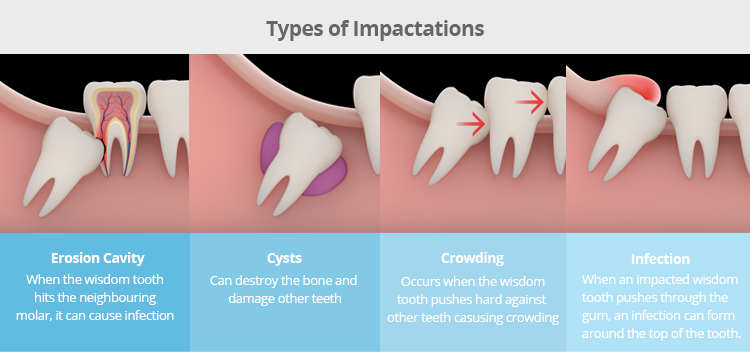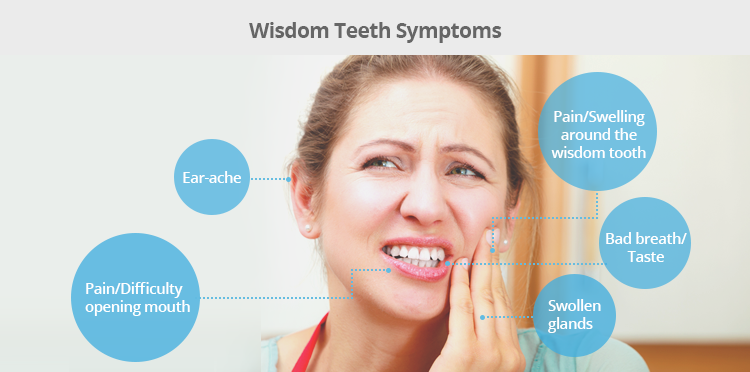Why do we call them “wisdom teeth”?
Originally called “teeth of wisdom” in the 1600s and later “wisdom teeth” by 1848, the molars don’t usually grow in until we’re between 17 and 24 years old, when we’re a little older and wiser than we were in our formative years. They’re our only teeth that don’t develop until after birth. Our primary and permanent teeth form prenatally as buds.
The Wisdom Tooth is in direct contact with the big nerve in the jaw, and the jaw bone is thin top-to-bottom. This involves risk during removal. Consult Now

Classifications enable the oral surgeon to determine the difficulty and procedure needed to remove the impacted tooth. This also enables us to provide referral information to the patient so that they can have their concerns addressed.
Never Ignore Your Impacted Wisdom Tooth
Don’t delay treatment for an impacted Wisdom Teeth Infection as numerous ways to treat wisdom teeth are available now-a-days. Whether a conservative approach or surgical approach to treatment you can be rest assured that Holistic Dental has the best dental professionals who are trained and experienced to perform such procedures.
Impacted Wisdom Teeth Symptoms
The most common sign is pain in the infected area. The pain also extends to the entire jaw, neck and throat, as well as headaches.
- Pain and swelling in the gum overlying the impaction due to the infection.
- Bad breath, due to infection and/or debris building up in the area.
- A bad taste in the mouth, for the same reasons.
- Pus coming out from the swollen gum area.
- Aches when you open your mouth due to stretching of inflamed tissues.
- Pain/ulcers on the inner cheek, where the pointy parts (cusps) of the impacted teeth may be digging into the soft tissues of the cheeks.
- Ear-ache, as pain can spread outward from the area.
Watch out for these signs and note that they may develop quite quickly. Immediately reach out to your dentist. At Holistic Dental Solutions your condition will be assessed by our oral & maxillofacial surgeons.

When should you remove impacted wisdom teeth?
A routine check up with the dentist is the best way to decide if the wisdom molars are causing any shifts or if they might be coming in from a different angle. While all four molars will erupt at the same time, they may also do so at different times. Also, they may be impacted or not impacted at the same time.
Three reasons why wisdom teeth should be removed
Pain- There is no reason to tolerate the pain and discomfort caused by the impacted wisdom teeth.
Orthodontics- If you have consulted with your orthodontist for undergoing treatment to align the teeth then they may have recommended the wisdom teeth to be removed. Multiple reasons why an orthodontist would ask the patient to have their wisdom teeth removed including but not limited to crowding and possible shifting in the future.
Poor Oral hygiene- Wisdom teeth are located in the far back of the mouth and are hard to reach for brushing and flossing. Bacteria are hard to clean in this rear area of the mouth hence prone to infections and tooth decay. It is best to remove the wisdom teeth to avoid infection or decay of surrounding tissues, bones and other teeth.


